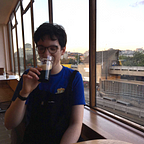On the “clapping ban”, accessibility and snowflake students
cn: this article contains discussion of ableism and ableist language
Earlier this week, the members of the University of Manchester Student Union voted to introduce a new accessibility measure for disabled students. At all of its democratic events — but not at concerts, etc. — it would encourage people to use the British Sign Language for applause (shaking both hands), thereby reducing the loud noise produced. This was for the benefit of deaf students, and those with autism and sensory impairments for whom waves of loud noise can make taking part in such spaces impossible.
Some of the British media took a different angle on the story. Manchester students ban clapping and insist on jazz hands read the headline in The Times; University of Manchester Students’ Union bans clapping, read the BBC. Some articles omitted references to accessibility and disability altogether, choosing to focus on the notion that clapping merely ‘causes anxiety’. On ITV’s Good Morning Britain, Piers Morgan harangued a representative from the student union, while a Twitter poll asked: “Should clapping be banned in case it causes anxiety?” with the answer a resounding no.
This all seems like a concerted effort to manufacture a story and turn what was a simple matter of accessibility into a wider debate, one that plays on ideas about political correctness gone mad and a generation of snowflake students. Chronic anxiety can and should be considered a disability but few in the public see it this way when used in such a context and the use of the term here without reference to accessibility only serves to confound the issue.
The substitution of discussions of accessibility for references to anxiety being caused made many feel able to demean those for whom access arrangements were being put in place. Several of the replies to the Twitter poll above (some of them recieving hundreds of likes) were from people with anxiety, stating that such measures were totally unecessary since they personally experience no issues with clapping.
Where explicit reference was made to disability in the press and online, the results were even more depressing. After a frankly baffling tweet that found a connection between the clapping ban and the First World War earlier in the week, Jeremy Vine tweeted this:
Jeremy at least acknowledges the fact taht the measure was introduced for disabled students, but nonetheless perpetuates a harmful myth about autistic people. Not only is it patronising to suggest that we need to be prepared for the world any more than those without autism, but the very idea that we can be acclimated to environments we find unpleasant is false.
Statements like this only succeed in convincing people that those with autism can be forced into change, that the right amount of exposure to a thing that they find unpleasant will make it tolerable. At its extremes, this ideology can manifest itself in abusive conversation therapies and treatments like ABA (Autism Behaviour Analysis). It only succeeds in causing autistic people to mask their discomfort and feel unable to speak up when they are suffering.
The sheer determination of neurotypicals like Jeremy Vine to make autistic people tolerate sensory environments they dislike reveals that they don’t believe we can have our own preferences, and make valid choices about them. It exposes a common strain of infantilisation. Why isn’t it okay for someone who is eighteen to decide they don’t want to go to a noisy concert or football match? This decision wouldn’t be questioned if it was made by anybody else. To many, autistic people are not free actors with their own preferences and tastes, but instead like children, who just need to keep trying vegetables until eventually they like them.
The conflation between accessibility and PC culture and between students with cognitive disabilities and snowflake millennials, is not new. It’s characteristic of a press that not only throws disabled students under the bus for clicks but also allows for the expression of outright hostility and discrimination in other places. Articles by autistic voices are few and far between, but outlets like the BBC are happy to publish articles with titles like: ‘I have dark thoughts about my children’s autism’.
Earlier this year, the associate editor of The Spectator and prominent eugenecist Toby Young was fired from the government’s new Office for Students in part because of comments he made about inclusivity in an article in 2012:
If Gove is serious about wanting to bring back O-levels the government will have to repeal the Equality Act because any exam that isn’t “accessible” to a functionally illiterate troglodyte with a mental age of six will be judged to be “elitist” and therefore forbidden by Harman’s Law.
Last August, The Telegraph published an article by the academic Tibor Fischer entitled ‘My fellow lecturers won’t say it in public, but students today are moaning, illiterate snowflakes’. In it, he complained that “almost every fourth essay” pleaded extenuating circumstances on the basis of “Asperger’s, autism, anxiety, depression, ADHD, OCD, dyslexia, dyspraxia”.
The idea of the snowflake student and political correctness gone mad can and will be used to justify not making reasonable allowances for disabled students. Some of the statements made by Twitter users in relation to this story, such as that disabled people should avoid spaces they find hard rather than making them more accessible, are the same sort that lead to the exclusion of disabled people from public life.
This matters. Making the world more accessible is that much harder when we are faced with a press that cynically manufactures news stories like the one above, to the detriment of the disabled, and gives huge platforms to ableist bigots like Toby Young.
